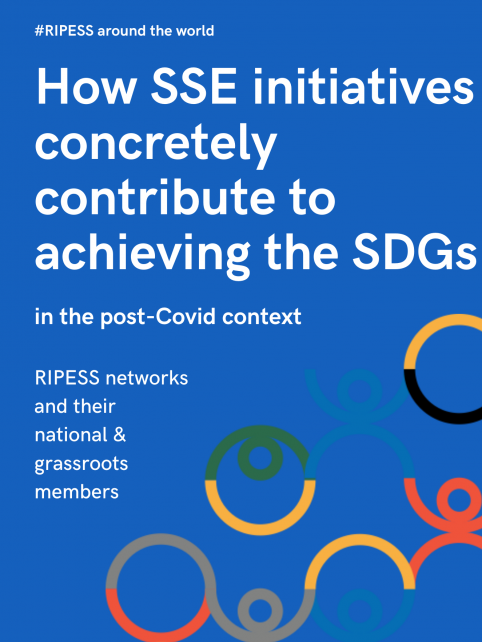How SSE Initiatives Contribute to Achieving the SDGs in the Post-Covid Context

In September 2015, UN Member States adopted the 2030 Agenda for Sustainable Development, composed of 17 Goals that are an urgent call for the mobilization of all countries in a global partnership.
In this context, Social Solidarity Economy (SSE) offers a central reference framework for implementing sustainable development and plays a key role in the design of public policies for Economic Development that benefit one and all.
SSE is undoubtedly a privileged way to achieve sustainable development, as SSE actors are already active in most sectors covered by the SDGs.
In line with that, the new RIPESS Strategic Plan 2021-2023 aims to contribute to an alternative post-Covid development model focused on the SSE. RIPESS, thanks to the impact of the local action of its members, contributes to the achievement of the SDGs, in confluence with other global networks and organizations, and with the institutions of the United Nations.
In this document, RIPESS showcases some of the local initiatives anchored in intrinsically inclusive community practices, based on communities, and encouraging citizens’ participatory practice, that members of RIPESS networks are undertaking to achieve the SDGs through the SSE.
Among the initiatives presented in this publication, notable examples from GSEF members include the ‘Dolbom’ program, an integrated community care services system implemented by the Seoul Metropolitan Government through its network of social economy centers; the work conducted by Insertech Angus (member of Chantier de l'économie sociale), a non-profit insertion enterprise that trains unemployed young adults while giving a second life to the computer equipment collected from companies and organizations; and the activities carried out by DANISANJI, a solidarity finance institution member of the RENAPESS network that provides ethical financing, aiming for the financial inclusion of vulnerable populations.